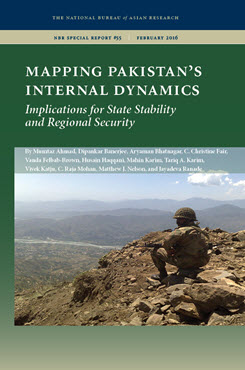Pakistan's Nuclear Proliferation and Its Impact on International and Regional Security
This essay examines Pakistan’s nuclear weapons program and the challenges it poses for regional and international security.
EXECUTIVE SUMMARY
MAIN ARGUMENT
Pakistan developed a nuclear weapons capability through the clandestine acquisition of fissile material and nuclear technology. It subsequently proliferated this to third countries, thereby violating both its own laws and international norms. Today, Pakistan’s nuclear weapons program poses three distinct challenges to international security: (1) theft or acquisition of nuclear material from within the country by terrorist groups, (2) state-to-state transfer of this capability to other countries, particularly in the Middle East, for financial or strategic gains, and (3) a nuclear confrontation with India, with which Pakistan has engaged in wars in the past.
POLICY IMPLICATIONS
Pakistan’s unpredictable internal dynamic poses a significant challenge for the goals of nuclear stability and nonproliferation. Likely proliferation scenarios include use by a terrorist entity, state-sanctioned proliferation, or conflict with India.
Dipankar Banerjee is a former Major General of the Indian Army. While in service and retirement, General Banerjee has served as both head and a senior fellow at a number of strategic research institutes in South Asia since 1987.


